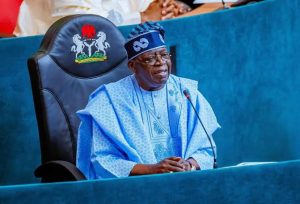
President Bola Tinubu
The Nigerian Tax Reform Bill 2024 introduces a comprehensive overhaul aimed at addressing inefficiencies in the country’s tax system and fostering economic growth. The reform includes four legislative components: the Nigeria Tax Reform Bill, Nigeria Tax Administration Bill, Nigeria Revenue Service (Establishment) Bill, and Joint Revenue Board (Establishment) Bill. These bills were derived from recommendations by the Presidential Committee on Fiscal Policy and Tax Reforms, led by Taiwo Oyedele, and are designed to modernize tax collection, improve compliance, and enhance fiscal transparency.
Key Highlights:
1. Simplification and Streamlining: The bill simplifies tax laws into a unified framework, making it easier for businesses and individuals to comply. It introduces exemptions for small businesses with turnovers below ₦50 million and reduces corporate income tax rates from 30% to 25% over two years, aimed at encouraging business growth and job creation.
2. Progressive Personal and Corporate Taxation: Low-income earners earning up to ₦800,000 annually are exempted from personal income tax, while high-net-worth individuals face higher tax rates. Additionally, VAT is set to increase from 7.5% to 10% by 2025, with exemptions for essential sectors like oil and gas exports, baby products, and electricity generation.
3. Use of Technology and Modernization: Technology integration will streamline tax administration, improve efficiency, and reduce leakages. For example, digital taxation provisions target revenue from tech-based businesses and high-net-worth individuals, signaling Nigeria’s intent to modernize its fiscal policies.
4. Addressing Revenue Gaps: The reforms aim to improve Nigeria’s tax-to-GDP ratio, currently at 8%, below the African average of 17%. By regulating the cryptocurrency market and creating a tax ombuds office, the bills address revenue losses in untapped and emerging sectors.
5. Criticisms and Concerns: Critics have raised concerns about the potential economic strain from VAT increases and higher compliance costs for medium-sized businesses. Additionally, some fear that increased revenue might not translate into tangible public benefits, given past inefficiencies in government spending.

The reform reflects President Bola Tinubu’s push for fiscal responsibility and economic growth, positioning Nigeria as a more attractive destination for investment while attempting to bridge the revenue gap and improve public services.
This bill is a significant step towards a transparent, efficient, and equitable tax system, although its full impact will depend on effective implementation and public trust in government spending.

